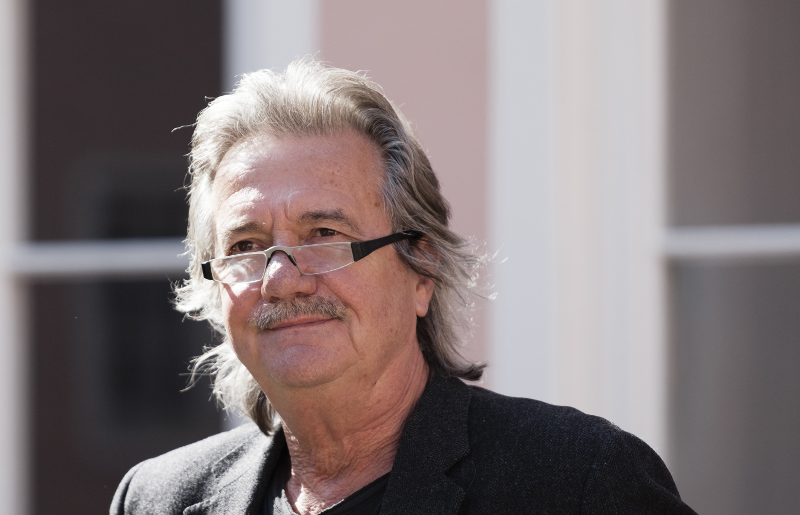Teaching Faculty
Each Global Citizenship Seminar is led by a team of teaching faculty who deliver lectures, facilitate dialogue, and provide academic leadership throughout the week. Every seminar is shaped by a carefully balanced group of faculty members with complementary expertise and experience, drawing from academia as well as national and international agencies, NGOs, corporate sector, and the arts and media.
Keshia Abraham
Keshia Abraham, PhD, is founder and president of The Abraham Consulting Agency, As a long-time educator, Keshia firmly believes in the transformative power of international education and the long term impact it has, hence her unwavering commitment to comprehensive internationalization/global learning especially at HBCUs (Historically Black Colleges and Universities). The daughter of two HBCU educated educators, Keshia grew up steeped in HBCU culture and international intercultural experiences and has worked successfully with all higher education institution types. She has served as a tenured faculty member, department chair, academic dean and program director at several higher education institutions. A former elected Council member at the Forum on Education Abroad, Abraham has collaborated on working groups, presented at forums, seminars, and conferences on both international education and African literature all over the world. Abraham earned a PhD in comparative literature with an emphasis on Postcolonial literature and culture and popular education, and her bachelor’s degree in English at the Spelman College.

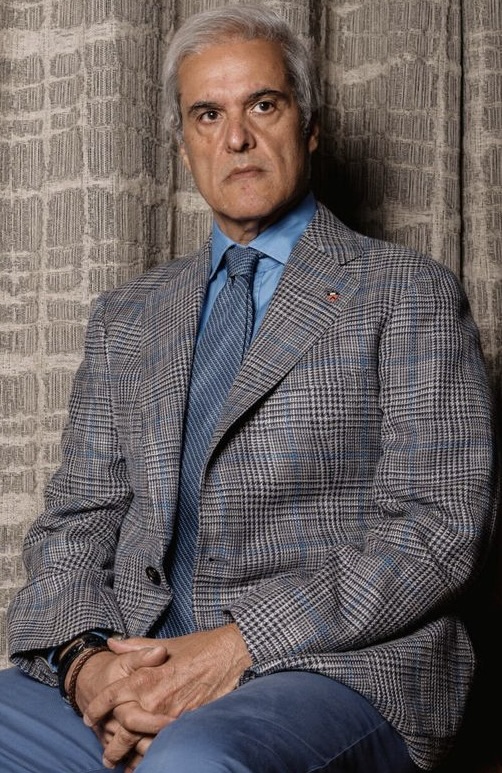
Hicham Alaoui
Michael F. DiNiscia
Michael serves as Director of Research & Strategic Initiatives at the John Brademas Center of New York University, overseeing the center’s research projects, international conferences, and strategic partnerships. He is coeditor, with Ellyn M. Toscano, of Civility Unbound: Contesting a Democratic Value (NYU Press, 2026). Using a multidisciplinary approach, and with writers from academia and civility society, the volume explores the theory and practice of civility, from its utility in facilitating dialogue and political compromises to its abuses in defining rules and norms that preserve status quo power and marginalize out groups. He also coedited, with Alberta Arthurs, Are the Arts Essential? (NYU Press, 2022), a collection of essays that explores the intrinsic and instrumental value of the arts in society. The book grew out of a unique multiyear project of research and conferences, which marshaled the contributions of artists, cultural professionals, foundation leaders, and scholars in the arts, humanities, and social sciences. He is leading the Center’s current initiative exploring how the arts and humanities contribute to the development of democratic values. He served as Project Director for “Staging Change: Arts Engagement and Social Wellbeing Amidst Rapid Social Change,” funded by the Mellon Foundation and led by researchers from the Social Impact of the Arts Project at the University of Pennsylvania and NYU Brademas Center. He is the author of several reports on international cultural engagement and the role of arts programs in combating Islamophobia. Prior to joining the NYU Brademas Center, he served as Special Assistant to the Chairman of the National Endowment for Democracy and has worked in publishing and programming at the Council on Foreign Relations and the Carnegie Council on Ethics and International Affairs. He is a member of the Advisory Council of the American Ditchley Foundation. He received a BA in history from NYU.
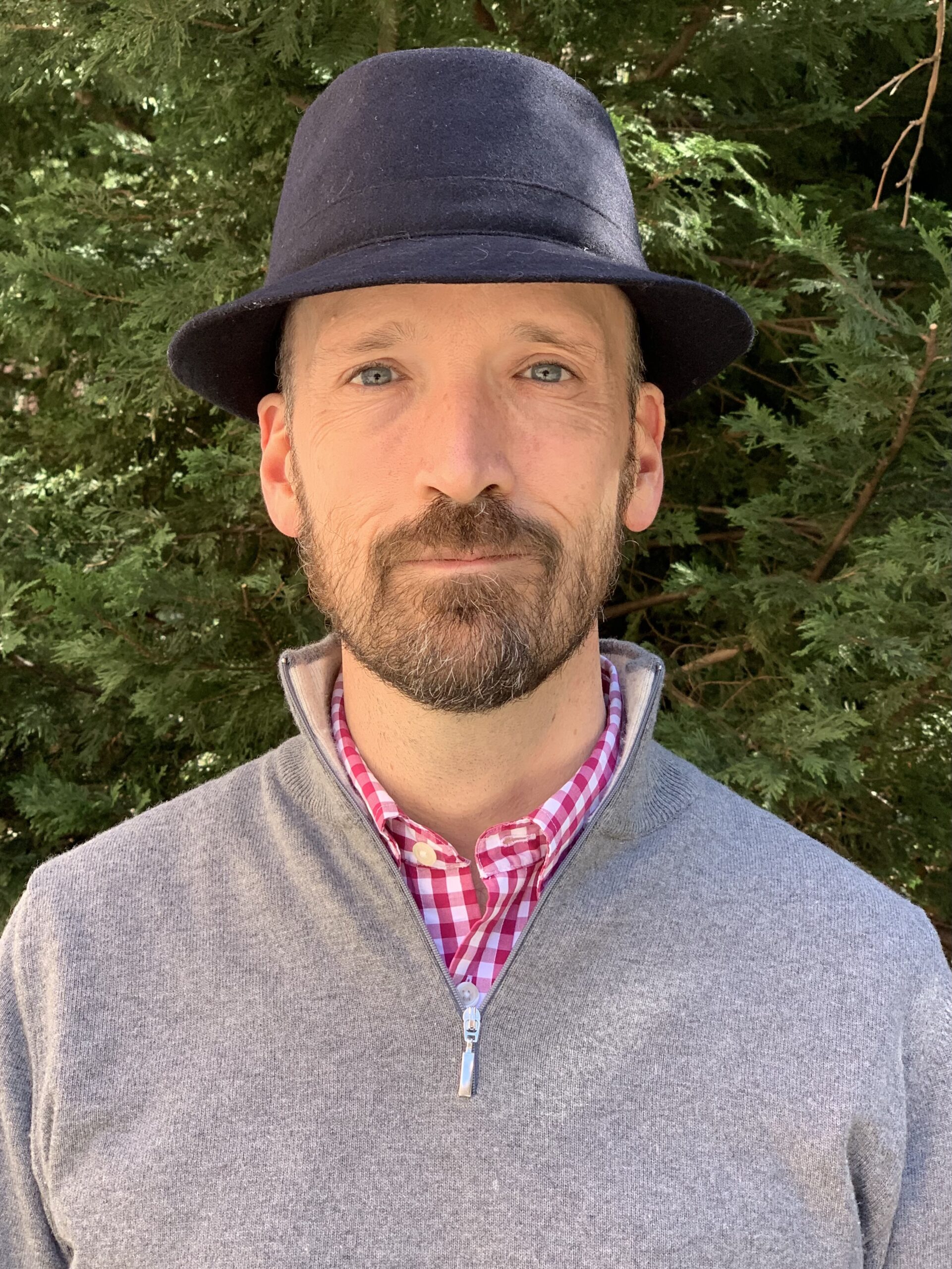
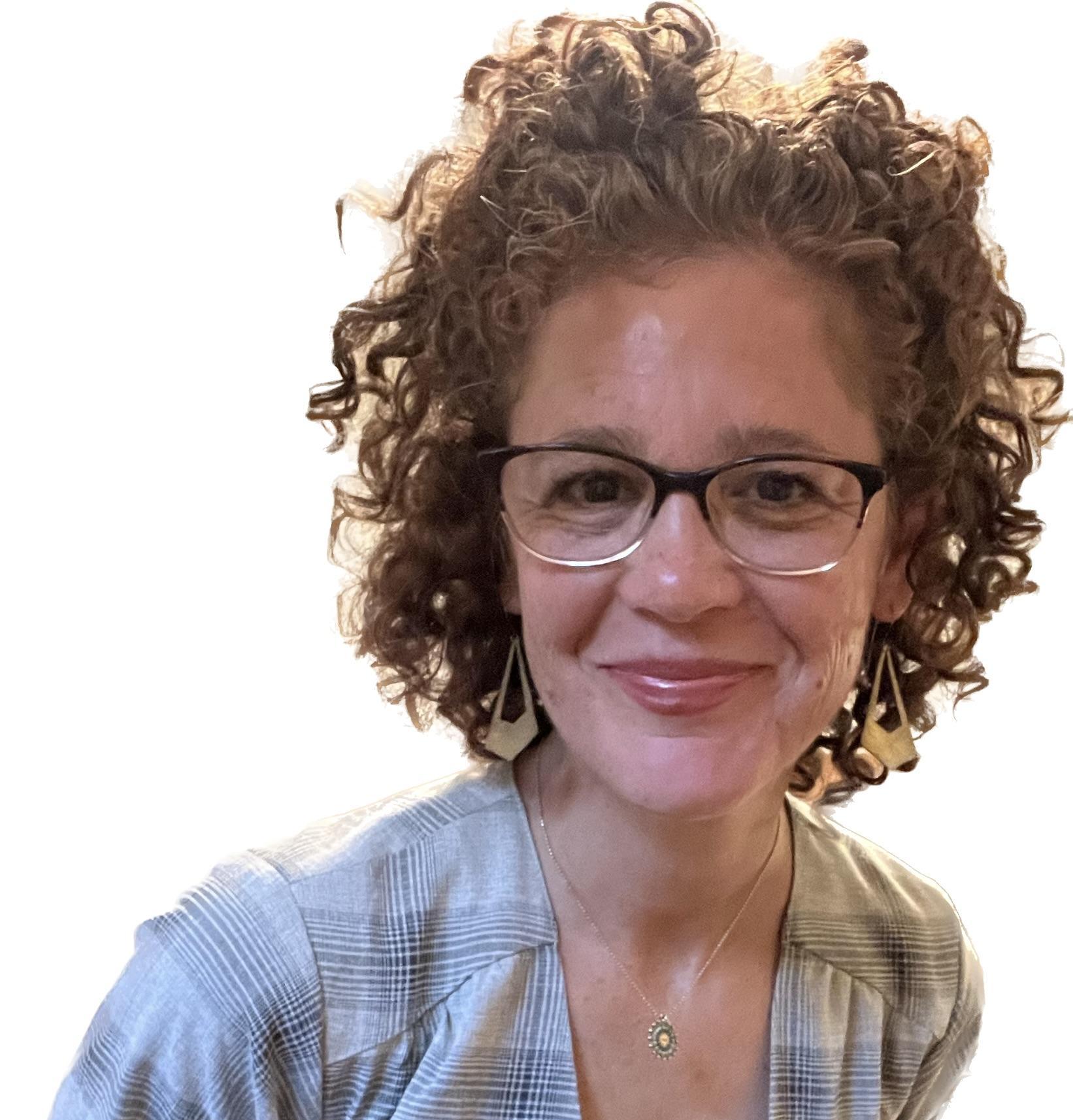
Stephanie Doscher
Stephanie Doscher, Ed.D., is an internationally recognized scholar-practitioner and senior leader in higher education internationalization, specializing in curriculum innovation, academic partnerships, and institutional capacity building. She currently serves as Senior Fellow with the Global Citizenship Alliance of Salzburg Global and as Executive Board member of COIL Connect. Dr. Doscher’s research and practice focus on the relationship between diversity and knowledge production across global boundaries. Her scholarly contributions include co-authoring The Guide to COIL Virtual Exchange (Routledge, 2022) and Making Global Learning Universal: Promoting Inclusion and Success for All Students (Routledge & NAFSA, 2018), as well as hosting the Making Global Learning Universal Podcast. Recent publications include “Curriculum Internationalization in the Digital Age” in Digital Internationalization: Beyond Virtual Exchange (Routledge, 2023) and articles in the Journal of International Students, EAIE Forum, and the International Association of Universities’ Handbook of Internationalisation of Higher Education. Her global learning assessment rubrics contributed to the development of the OECD PISA Global Competence Framework. As an internationalization researcher and consultant, Dr. Doscher works with institutions worldwide to advance global learning initiatives through professional development and advising for COIL virtual exchange, integrative curriculum design, and transformational organizational leadership and partnership building. She holds an Ed.D. in Educational Administration and Supervision from Florida International University, an M.Ed. in Secondary Education from Western Washington University, and a B.A. in History and Theater Studies from Emory University.
Birsen Erdogan
Birsen is a full-time lecturer at Maastricht University, Maastricht, the Netherlands. She coordinates and teaches courses like International Relations Theory, Middle Eastern Politics, Peace and Conflict Studies, and Contemporary Security Studies. Her main interest areas are security, foreign policymaking, the Middle East, and discourse analysis. She has authored several books and book chapters and published articles on these issues. Birsen graduated from Bilkent University in Ankara, where she studied International Relations. Later she studied at the London School of Economics, Utrecht University and finally Maastricht University. She has also worked in several international projects, including a comprehensive human rights training project in Turkey.
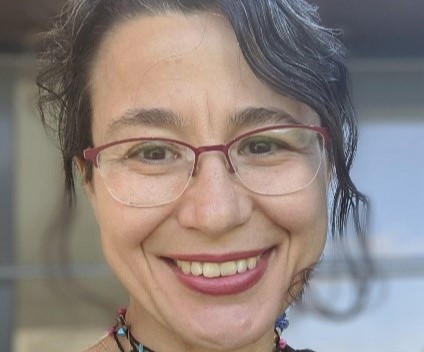

Paul Espinosa
Paul is an award-winning filmmaker who has worked at the intersection of social justice, documentary film and Latino history over the last 45 years. Based in California and raised in New Mexico, he uses the power of media to recover stories about unsung heroes whose lives inspire us. He is the President of Espinosa Productions, a film and video company specializing in films focused on Latino issues and the U.S.-Mexico border region. His films capture the transformative energy of the men and women in the U.S.-Mexico borderlands, examining key events in the contentious history between Mexico and the U.S.; the productive intersection of art, music and civil rights; and the struggles of both documented and undocumented Mexican immigrant families. His films have been screened at festivals around the world and have won many awards including eight Emmys. In January 2025, he screened five of his films in Madrid at the Filmoteca Española in a mini Paul Espinosa festival. He holds a BA from Brown University, a Ph.D. from Stanford University and is Professor Emeritus in the School of Transborder Studies at Arizona State University. He was a Founding Board Member and President of the Media Arts Center San Diego which has overseen the San Diego Latino Film Festival for the last 33 years.
Reza Fakhari
Reza has been the President and CEO of the Global Citizenship Alliance (GCA) since
March 2024. Prior to assuming this position, Reza served as the Secretary of the Board
of Directors of GCA for 8 years. He has been elected for the fourth time to the Board of
Directors of Amnesty International USA (2025-2028). Previously, he was elected to the
Amnesty International USA Board in 2014, 2015 and 2018 and served as Vice Chair
and then Chair of the Board. Reza served as Chair of the Board of Student World
Assembly which aimed to engage students from all over the world in critical reflection
and new thinking about pressing global issues. Reza served as Vice President for
Internationalization and Strategic Initiatives and a professor of international politics at
St. Francis College in New York City where he led the comprehensive
internationalization of the College and developed a Human Rights Program. Prior to St.
Francis, he served for 30 years in progressively responsible roles at LaGuardia Community College and Kingsborough Community College of The City University of New York (CUNY) as professor, director, dean, associate provost, acting provost, and vice president. He has also taught at Fordham University, Vassar College, Rutgers University, and International Pacific College in New Zealand. He holds a Ph.D., with Honors, in International Relations from the New School for Social Research in New York City.
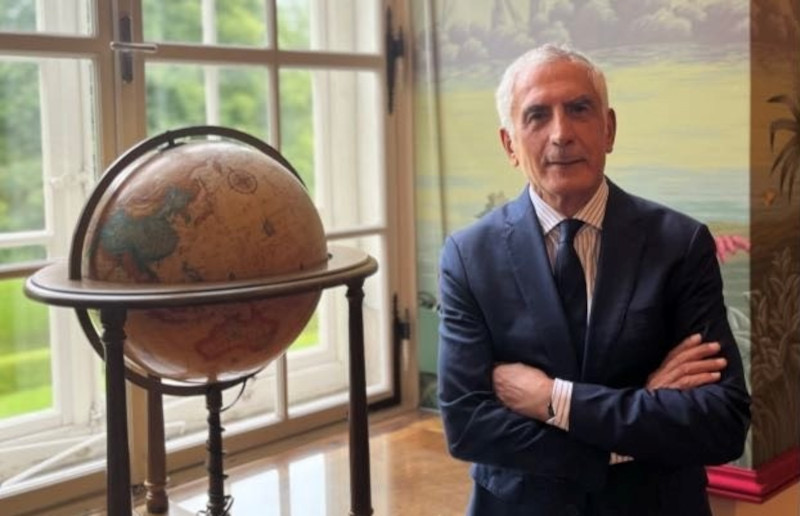
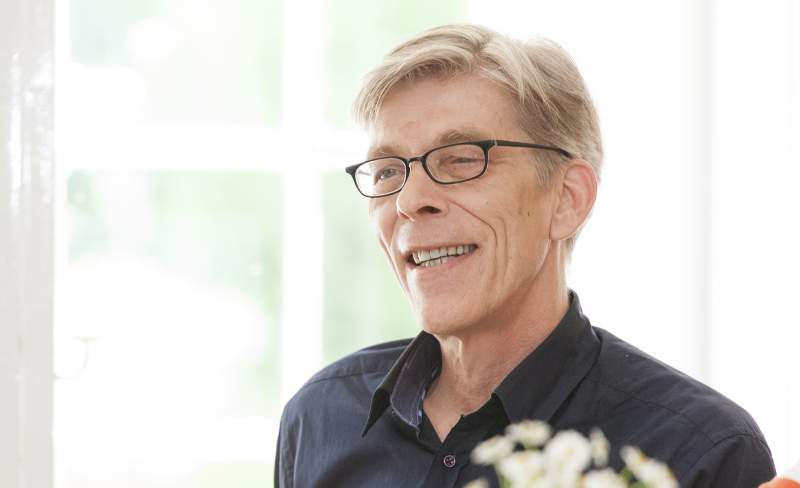
Jochen Fried
Dr. Jochen Fried was the founding President/CEO of the Global Citizenship Alliance,
leading the organization until March 2024. Prior to that, he was Director of Education at
Salzburg Global Seminar, where he was responsible for developing and maintaining
programs that highlight the pivotal role of education in building resilient and equitable
societies, including the Global Citizenship Program and the Salzburg Academy on
Media and Global Change. He also held the positions of Head of Programs at the
Institute for Human Sciences in Vienna, and of senior officer at the secretariat of the
German Higher Education and Science Council (Wissenschaftsrat). After earning a
doctorate in German literature at Düsseldorf University, Germany, he was a lecturer at
Cambridge University and Ljubljana University, and a visiting scholar at various
universities and colleges in the United States including Smith College in Northampton,
MA, San José State University, CA, Bronx Community College/CUNY, NY, and
Morehouse College in Atlanta, GA. He has worked in more than twenty countries on
behalf of national and international organizations and has published widely on various
topics related to higher education policy and global civil society.
Farid Hafez
Farid Hafez, an Austrian political scientist, teaches International Relations at William and Mary. He was previously the Class of 1955 Distinguished Visiting Professor of International Studies at Williams College in Massachusetts. Since 2017, he has been a faculty member at Georgetown University’s Edmund A. Walsh School of Foreign Service where he researches and writes about Islamophobia as a Senior Fellow for The Bridge Initiative. In 2017, he was a Fulbright visiting professor at the University of California, Berkeley, and in 2014, he was visiting scholar at Columbia University, New York. Since 2010 he has been the editor of the Islamophobia Studies Yearbook, and since 2016 the co-editor of the European Islamophobia Report. Farid was also a lecturer and researcher at the University of Salzburg, Department of Political Science and Sociology.
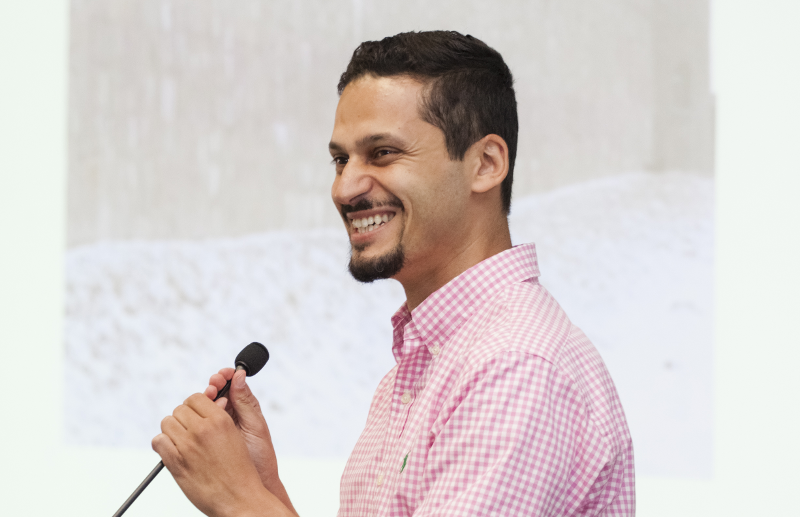

James Harvey
Following a career in government, James provided professional development opportunities for hundreds of school superintendents over 30 years as executive director of the National Superintendents Roundtable. He retired in 2022. An expert on education in an international context, James helped organize dozens of study missions to examine schools in China, Finland, England, France, and Cuba. He has provided keynote addresses on American education to audiences in Beijing, Bogotá, Dublin, Edinburgh, Havana, Helsinki, London, Oxford, Paris, and Tokyo. A native of Ireland, James was educated in England, Ireland, and the United States. He recently published a memoir describing life as a child in postwar London and Ireland (Grappling With Ghosts, 2025). He is the author or co- author of dozens of articles and five books on education and education policy, including A Legacy of Learning (2000, with David Kearns, former CEO of Xerox) and The Superintendent’s Fieldbook (2nd ed. 2013). He served as editor of A Nation at Risk (1983), the seminal report that launched the school reform movement. Early in his career he served as a policy analyst and legislative specialist for the Committee on Education and Labor of the United States House of Representatives and as an education lobbyist for the Carter White House. A graduate of Villanova University, he holds a master’s degree in history from the University of Pittsburgh and a doctorate from Seattle University.
Charles Hopkins
Charles Hopkins holds the UNESCO Chair in Reorienting Education towards Sustainability at York University in Toronto, Canada. This Chair, established in 1999, was the first to focus on Education for Sustainable Development (ESD) as an essential concept for quality education and to position sustainability as a purpose of education. Hopkins’ Chair coordinates two global networks, the International Network of Teacher Education Institutions and the #IndigenousESD. Hopkins has collaborated with UNESCO, United Nations University, as well as higher education institutions and ministries of education in Asia, Europe, Africa, and the Americas regarding transforming education to address sustainability. A Fellow of the Royal Society of Arts (United Kingdom), with honorary doctorates and professorships spanning Europe, Asia and South America, he has lectured worldwide on topics of quality education, global citizenship education, and educating for a sustainable future. Prior to his international career, Hopkins was regional superintendent with the Toronto District School Board in Canada.
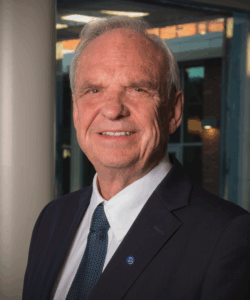
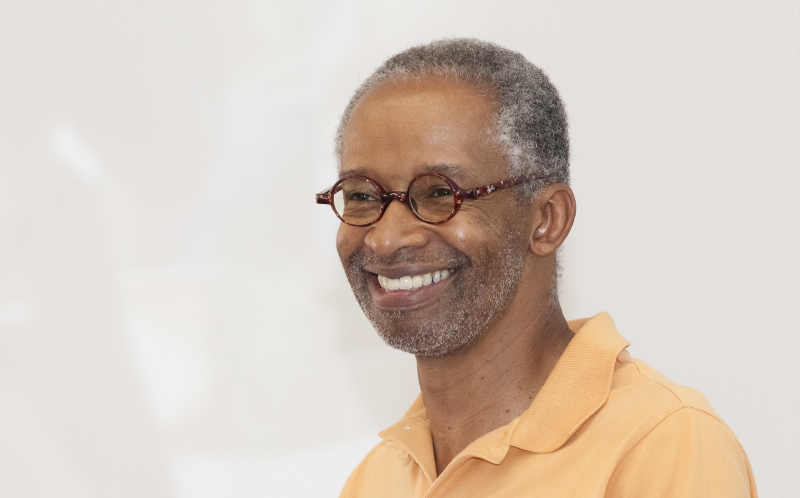
Maghan Keita
Maghan is professor of history, director of the Institute for Global Interdisciplinary Studies, and chair of the unit on Critical Language and Cultural Studies at Villanova University. He was the chair of the Board of Trustees of the College Board and has spent the majority of his professional life concentrating on issues of education in various venues with a particular focus on excellence, access and equity in the educational process. Maghan holds a B.A. in Chinese language and East Asian studies from Oberlin College; an M.A. in American history from Cleveland State University; and a Ph.D. in African studies from Howard University. He joined the Teaching Faculty in 2013.
Katrin Kohl
Katrin Kohl is Co-Chair of the UNESCO Chair in Reorienting Education towards Sustainability at York University in Toronto, Canada, Faculty of Education, and serves as Focal Point for Sustainable Development Goal 4 (Quality Education) within the Higher Education and Research for Sustainable Development Global Cluster, led by the International Association of Universities. She holds a degree in German law and an MBA in management and has served as Executive Coordinator of the UNESCO Chair at York, Managing Director of the German Commission for UNESCO, and Strategic Advisor to the Vice-Chancellor at the University of Düsseldorf. With a PhD in Education from the International Islamic University Malaysia, Katrin builds bridges across disciplines and cultures for sustainability.
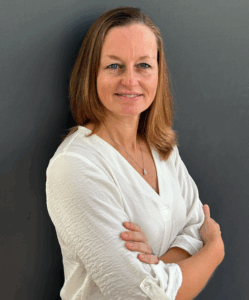

Tatiana Kotlyarenko
Tatiana is an international expert and speaker on violence against women and girls and
human trafficking. Tatiana Kotlyarenko has been the Advisor on Anti-Trafficking Issues at OSCE/ODIHR since 2016. She worked on the 2nd edition of the National Referral Mechanisms – Joining Efforts to Protect the Rights of Trafficked Persons: A Practical Handbook, and Addressing Emerging Human Trafficking Trends and Consequences of the COVID-19 Pandemic, as well as providing technical support and capacity building to combat trafficking in human beings to OSCE participating states. In response to the ongoing armed conflict in Ukraine, which especially impacts women and children, Tatiana conducted rapid assessment missions and provided recommendations to countries on how to prevent and address trafficking of Ukrainian women and children. In addition, Tatiana works on issues related to sexual violence in conflict zones. She has been the recipient of Asia Society’s The Last Girl Awards in 2022 and is a member of BMW Responsible Leaders. She received her MA in Human Rights and Economic Development from Columbia University.
Joe D. May
Joe is currently the Chair of the Board of Directors of the Global Citizenship Alliance.
He is Chancellor Emeritus of Dallas College where he served as the seventh chancellor.
Dr. May is known both nationally and internationally as a result of his relentless
advocacy for the role of community colleges in solving today’s most challenging social
issues. During his seven years as president of the Louisiana Community and Technical
College System, enrollment increased from 71,000 to more than 160,000 students. As a
community leader and educator, Dr. May strongly believes in achieving academic
excellence and has worked closely with public school districts, sponsored charter
schools, career academies and early college programs. A hallmark of his approach to
leading community colleges is the creation of public-private partnerships. By forming
these partnerships, Dr. May has helped jump-start new economic investment and job
creation. Respected throughout the world, he has delivered consulting services to new
community college initiatives in Japan, the United Kingdom, Russia and Saudi Arabia.
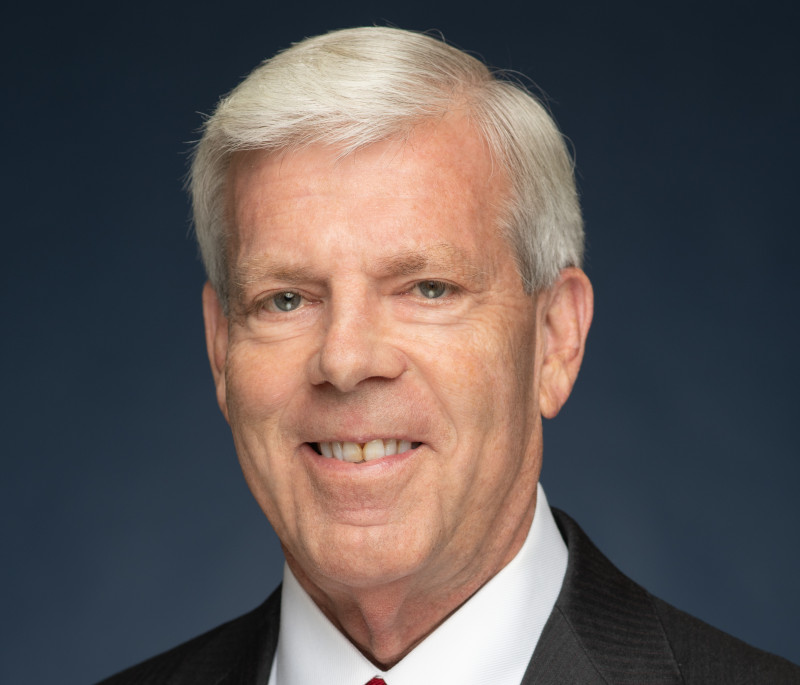

Ken Mayers
Ken is a lecturer at St. Francis College, Brooklyn, where he teaches literature, political
science, and history. He was elected to the Amnesty International USA Board of Directors in 2010 and served as Vice Chair. He currently serves as Chair of the Coordination Group Steering Committee of Amnesty International USA. He helped to establish the Human Rights minor at St. Francis, and has developed a series of courses for the program, including the introductory Understanding Human Rights course, International Human Rights and Humanitarian Law, and Human Rights Education for Educators, as well as summer programs for international students. Before St. Francis, Ken worked for 25 years at the Bergen County Academies, in Hackensack, NJ, where he taught Arabic, English, History, and French, and organized student programs in France, Singapore, and China. Ken earned his Ph.D. in Comparative Literature from the University of California, Los Angeles; his dissertation, entitled “Jeux d’esprits de corps: writing and communities,” explored the emerging cosmopoetics of interculturality.
Lauren McNamara
Dr. Lauren McNamara is a writer and performer from Limerick. She is the Outgoing Student Officer in the International Office at Mary Immaculate College, Limerick. In 2025 she launched her debut poetry collection “Quarter Life Crisis” with Revival Press. She has a Ph.D. in English Literature from Mary Immaculate College in the areas of Disability Studies and Post-Colonial Studies. She has been published widely (Poetry Ireland, Routledge and many more), has been featured on television and radio, and has won several writing awards and residencies. She has performed her plays “Quarter Life Crisis’” and “Hello My Name is Single” in several cities around the world and at festivals such as Glastonbury and Electric Picnic. She co-runs the First Wednesday Poetry Series at the White House Bar in Limerick and delivers writing workshops in schools and universities including Columbia
University. She has worked with several charity groups such as TLC, Helium Arts and Fairtrade Ireland in various roles. Lauren is a Fellow of Global Citizenship Alliance Seminar 35 (July 2025).
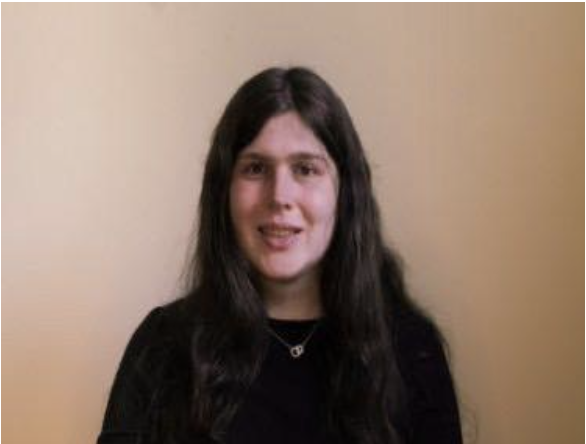
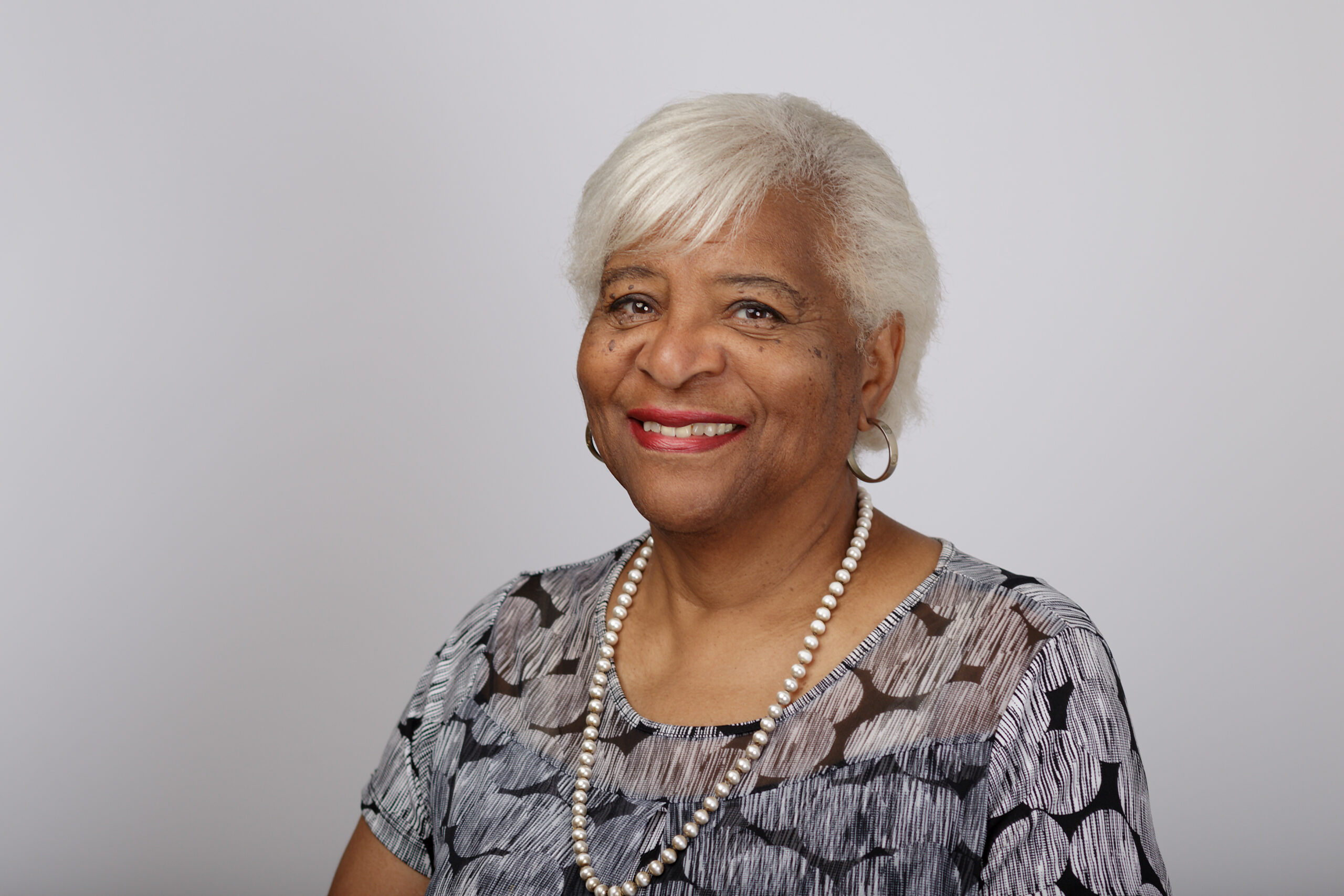
Yolanda Moses
Yolanda serves as professor of anthropology, associate vice chancellor for diversity, equity and excellence, and executive director for conflict resolution at the University of California, Riverside. She previously served as chair of the Board of the American Association of Colleges and Universities, president of City University of New York/The City College, and president of the American Association for Higher Education. Yolanda’s research focuses on the broad question of the origins of social inequality in complex societies through the use of comparative ethnographic and survey methods. She has been involved in many Salzburg Global Seminar programs, is a core faculty member of the Mellon Fellow Community Initiative, and co-chair of the Board of Directors of the Global Citizenship Alliance.
Champa Patel
Champa is the Executive Director for Governments and Policy, which includes leading on the strategy, development and growth of Climate Groups work with subnational and national governments, including the Under2 Coalition, and international institutions. She also leads on the organisation’s policy development and advocacy strategies. Most recently, Champa was Director of Innovation and Deputy Director of the Future of Conflict Program at the International Crisis Group. In this role, she was responsible for research and advocacy on climate, technological and the economic aspects of conflict. Before this, Champa was Director of the Asia-Pacific Programme at Chatham House, managing policy research on the region. She has also worked at Amnesty International, as Regional Director for the South Asia, and Southeast Asia and Pacific Offices and as Global Director for Campaigns, overseeing human rights policy, research and advocacy.
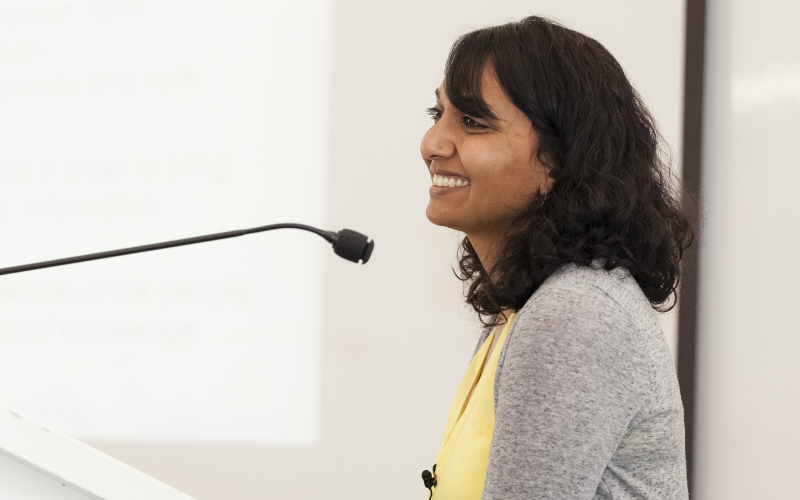
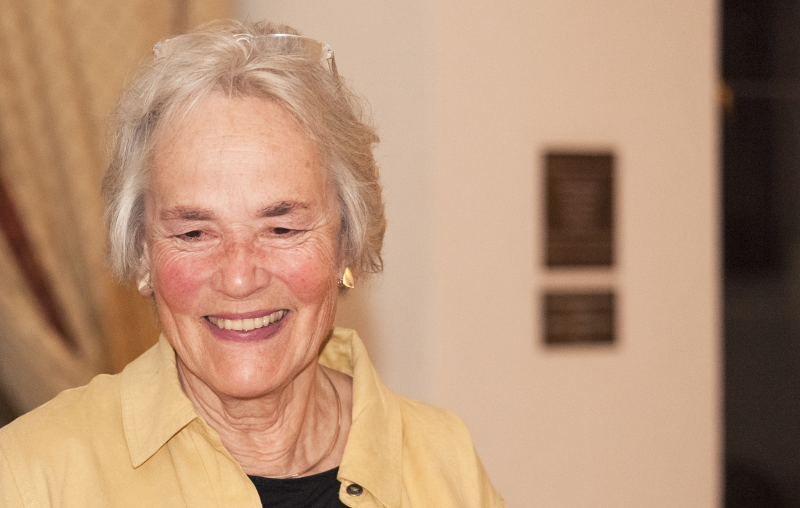
Hedy C. Rose
Hedy has taught at every level, from pre-school to university. She was born in Amsterdam and has lived in the United States since 1947. She has served on the faculties of Smith College; the University of Massachusetts, Hampshire College, where she was a long-time member of the School of Social Science and headed Education and Child Studies; and Wesleyan University where, for seven years, she taught and directed the Educational Studies Program for both undergraduates and graduate students. For the Global Citizenship Program she lectures on her personal experiences during the Holocaust since 2004. Hedy is an Emerita member of our core faculty.
Peter Rose
Peter (Ph.D. Cornell, 1959) is Senior Fellow of the Kahn Liberal Arts Institute, Sophia Smith Professor Emeritus of Sociology and Anthropology, and former director of the American Studies Diploma Program for foreign graduate students at Smith College in Massachusetts. He is also a member of the Graduate Faculty of the University of Massachusetts. Peter has been a visiting professor at Clark, Wesleyan, the University of Colorado, UCLA, Yale, and Harvard. He has served on the Faculty of many Salzburg Global Seminar sessions, is a core Faculty member of the Global Citizenship Program since 2004, and serves on the Board of American Studies of the Salzburg Global Seminar. Peter is an Emeritus member of our core faculty.
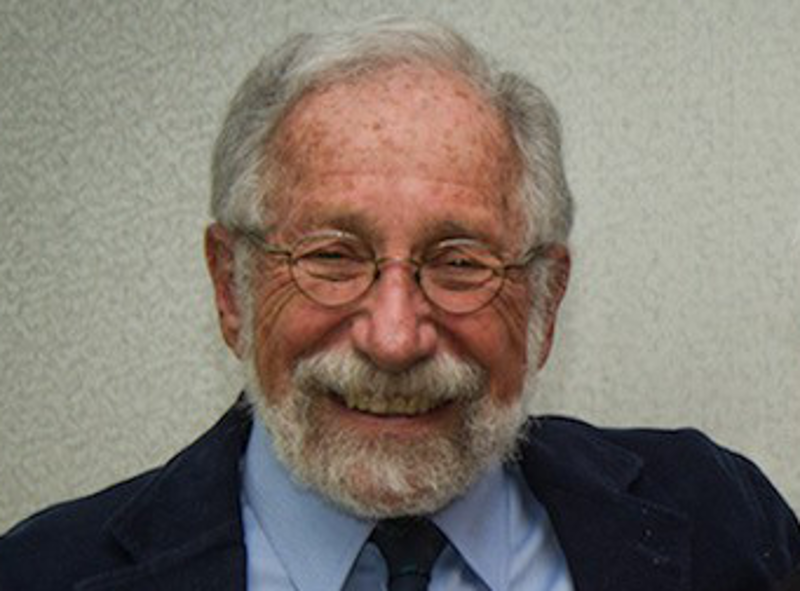

Alex Seago
Alex is Emeritus Professor of Cultural Studies at Richmond The American University in London, England. With an interdisciplinary academic background in American studies, cultural history and cultural studies, he has taught for a wide variety of American and British universities and colleges, including the University of Kansas, The Royal College of Art, Sotheby’s Institute, Bournemouth and Poole College of Art and Design, and the London campuses of the University of Maryland, University of Wisconsin and Syracuse University. Alex’s research interests focus upon the area of cultural globalization – with particular reference to music, art and design. He joined the Teaching Faculty in 2009.
Tazalika te Reh
Tazalika is an architect and cultural studies scholar. For over 10 years she has been researching the intersections of architecture, space and racialization, specifically in the context of decolonization and decarbonization. She holds a PhD in Cultural Studies from TU Dortmund University, realizes architectural projects, works in the EV charging industry and teaches Global Citizenship in Austria. As part of her academic work, she has received fellowships from the Salzburg Global Seminar and Stiftung Mercator, and has been a visiting scholar at Columbia University and the Schomburg Center for Research in Black Culture. Dr. te Reh is a member of the teaching faculty of the Global Citizenship Alliance.
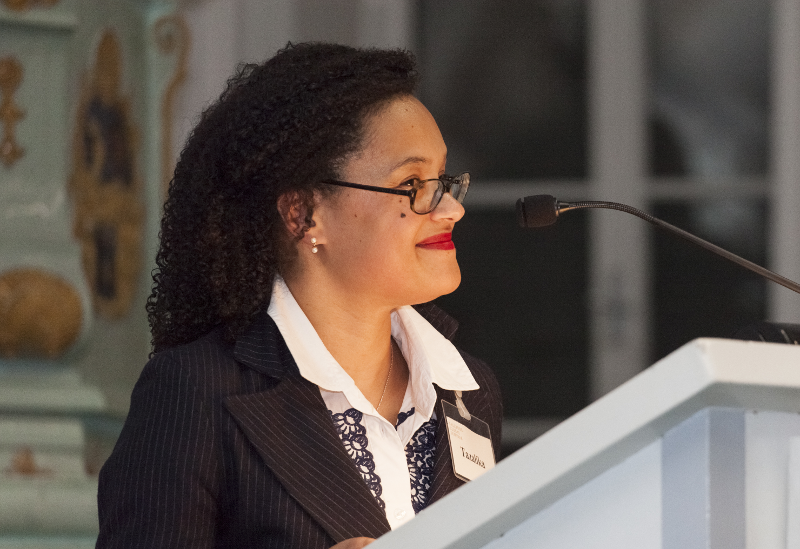
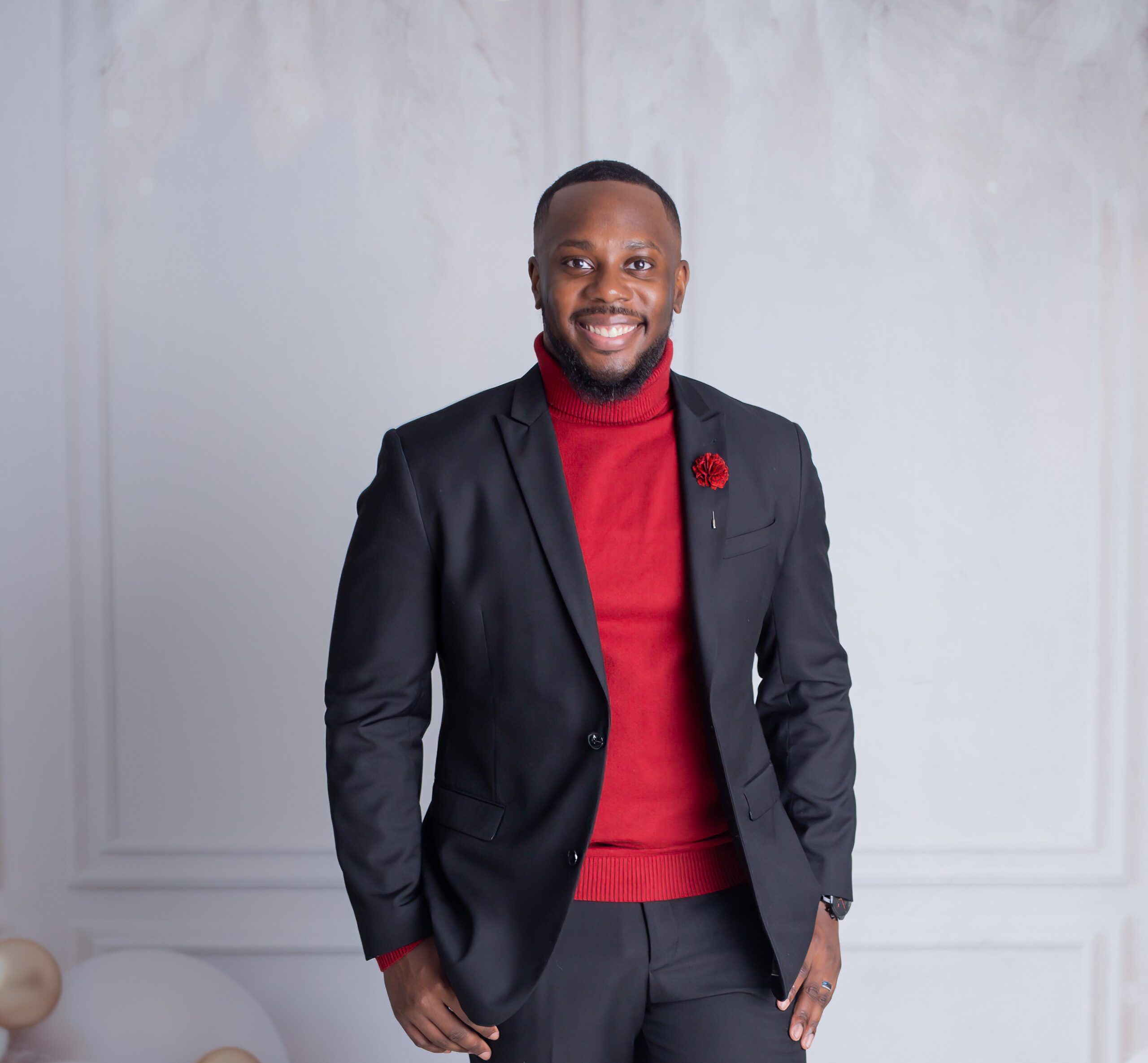
Lavar Thomas
Lavar Thomas is transformational leadership coach, author, and speaker specializing in purpose-driven leadership and global engagement. He founded Empower For Greatness, a company that equips individuals with the tools to lead authentically and drive meaningful change. A proud alumnus of the Global Citizenship Alliance (2010), he served as teaching faculty from 2015 to 2020. Lavar currently serves as a Senior Advisor at the U.S. Environmental Protection Agency where he has also held roles as Special Assistant to the
Deputy Administrator and Lead Environmental Justice Coordinator. A returned Peace Corps volunteer (Rwanda), he co-founded Leaders of the Free World, a nonprofit focused on
expanding global leadership and cross-cultural opportunities for young Black men.
He is the author of The Other Side of Letting Go and a two-time TEDx speaker. Lavar holds
an M.S. in International Business from the University of Delaware, a B.A. in Political Science from Clark University, and an A.A. in Liberal Arts from Kingsborough Community College/CUNY.
Reinhold Wagnleitner
Reinhold is a student of global US cultural influences and the Cold War. He was associate professor of modern history at the University of Salzburg and visiting professor of US history at the University of Minnesota, Minneapolis, Franklin and Marshall College, Lancaster, Pennsylvania, and the University of New Orleans, Louisiana. For many years he played bass and sang in Austrian rock and jazz bands. He is a lecturer of history at Salzburg College and the former president of the Austrian Association for American Studies. He is the author of Coca-Colonization and the Cold War: The Cultural Mission of the United States in Austria After the Second World War. Over the years, he has served on the Faculty of nearly eighty seminars for both students and faculty and administrators.
